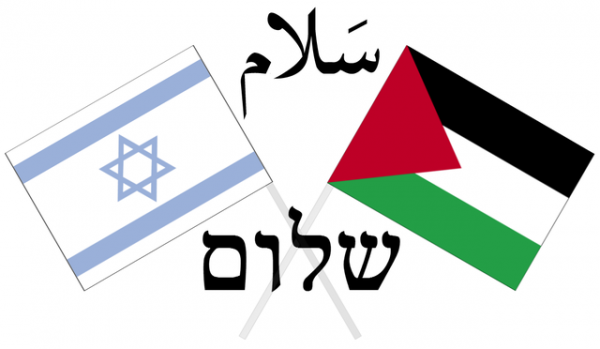
Amidst all the news reports and speculation about a renewed push for a two-state solution to end the Arab-Israeli conflict, many have been very vocal about why the two-state solution is simply not the right way to end the conflict. These critics lament that the two-state solution is a crying injustice to either the Palestinians, the Israelis or humanity in general.
Right-wing opponents of the two-state solution based on the 1967 lines with land swaps – the solution most often discussed by the international community and seriously considered by many Israeli and some Palestinian leaders – claim that even with land swaps, the future Palestinian state will pose an imminent threat to the state of Israel. The West Bank consists of highlands and mountains that look down on Israel’s narrow and populous coastal strip. An Israeli withdrawal from those areas would make it easier for terrorists to stage attacks on Israel. Furthermore, the conventional two-state solution entails thousands of Israeli settlers evacuating their homes, leaving the future state of Palestine free of Jews – judenrein, as some would say.
And they have a point. Israel would indeed be evacuating land that could become a base for terrorist activity almost a stone’s throw from the Tel Aviv metropolitan area. And yes, it is not fair that the state of Palestine would come into being – in this scenario – as a state completely devoid of Jews.
Far-left opponents of the two-state solution — those who promote a one-state solution or a bi-national state where all Jews and Palestinians live under the same law as equal citizens — also decry the two-state solution. They ask: what about the Palestinian refugees from 1948? Why should they be barred from returning en masse to their homes in what is today Israel? Isn’t it racist to say that the Palestinian refugees are not allowed to return because this would “spoil” the Jewish nature of Israel? Doesn’t a true democracy, as Israel purports to be, not discriminate in such a way? In the two-state scenario being discussed, they lament, Palestinian refugees who fled or were forced from their homes in 1948 would (largely) be barred from returning, while a Jewish person who grew up in America would be welcomed and given instant citizenship upon arrival in Israel. Where is the justice there?
And they have a point. Even if the Arab armies and the Palestinian leadership in 1948 were intent on killing all of the Jews in the nascent Jewish state, this still does not logically entail that those Palestinian refugees who would like to return and live in peace with their neighbors — as dictated in United Nations General Assembly Resolution 194 – ought to be barred from doing so.
But what opponents of the two-state solution seem to have difficulty coming to terms with is that neither the Zionist nor Palestinian national movements will get complete justice in any solution to the Arab-Israeli conflict. A one state scenario would lead to the same fighting that we saw in 1948, when two national movements fighting for the same land got caught up in a brutal war. A one-state solution would not cancel out the reality that Israelis aspire to have a Jewish state of their own, and the Palestinian national movement would never acquiesce to a state where the Zionist movement has the upper hand. Furthermore, wouldn’t it be unfair to the Israelis if the whole world turned their backs on their commitment, enshrined in United Nations General Assembly Resolution 181, to the existence of a Jewish state somewhere in the land between the Jordan River and the Mediterranean Sea?
Yet ignoring Palestinian aspirations for a state of their own is also manifestly unfair. There are millions of Palestinians living in the West Bank, where they maintain partial or full self-rule in only less than half of that area (Areas A and B), in pockets of land that are separated by Israeli-controlled territory. This cannot go on forever; the Palestinians are entitled to a state of their own. Both the Zionist and Palestinian national movements will have to meet somewhere in the middle of the justice spectrum. A two-state solution is the best way of achieving this.
The nagging issue is that scores of people with a stake in solving the Arab-Israeli conflict and shaping the discourse around it are worlds apart on the historical narrative of the conflict. This causes some people to believe that true justice for the Palestinians means giving them a state in perhaps just Area A and B, and telling those Palestinians who do not like it that there are over 20 other Arab states for them to go to. It causes other people to believe that true justice dictates that Israel as a Jewish state must be dismantled because it is inherently undemocratic; that all the Palestinian refugees must be allowed to return to their homes and villages even though (or perhaps precisely because) this would end Israel’s existence as a Jewish state. With these divergent views of justice, it is no wonder that the bloody conflict wages on.